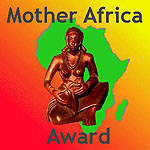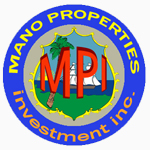
|
|
GABON

|
|
|
|

|
|
|
Official Name
|
République Gabonaise
|
|
Located
|
Mid West: Cameroon, Congo
|
|
Capital
|
Libreville
|
|
Head of State |
President El Hadj Omar Bongo
|
|
Area
|
267,665 sq km
|
|
Population
|
1.1 million
|
|
Growth rate
|
2.8%
|
|
Languages
|
French, Fang, Myene, Bateke, Bapounou
|
|
Currency
|
Central African CFA franc
|
|
GNP per capita
|
$3,641
|
|
Inflation
|
30%
|
Airlines
(advertise here)
|
from Europe: Sabena
from Asia: ________________
from USA: ________________
|
Hotels
(advertise here)
|
Names & Rates per night
______________________
______________________
|
|
USAfrica Agent
|
Afripromo/Conakry
|
|
Country Advertiser
|

|
|
AFRICA-4-AFRICA: FOR GABON
Economy:
The major export is lumber. The discovery of oil facilitated the overextension of the state since independence, and has brought with it serious economic distortions. Because of its off-shore oil and gas and its small population, Gabon is one of the richest countries per capita in Africa. In 1970, oil exploration and output rose from 5 million tons to 17.2 million tons in 1994 and turned the Gabon into the richest country in sub-Saharan Africa. Availability of better economic opportunities in cities sparked a rural exodus, and 73 percent of Gabon's 1.2 million inhabitants now live in urban areas. In 1997, unemployment stood at 21 percent; 30 percent of the active urban population under the age of 26 is unemployed, a figure which threatens to rise further as new jobs are not being created fast enough to make up for the contraction in public and parastatal sector jobs, and the rapid population increase. Gabon's economy, built on oil, timber, manganese and other natural resources, is highly dependent on global price movements of commodities and on the external environment in general. Recent drops in the price of oil, combined with the negative impact of the East Asian financial crisis on demand for Gabonese timber and rubber and recent unfavorable exchange rate movements (oil revenues are collected in US dollars) have engendered a public finance crisis that is hampering the government's ability to service its external debt promptly.
History:
Gabon was first inhabited by the Pongoue (Mpongwe) people after the 16th century, who were in turn, followed by the Fang. Ultimately, the French built a port in the region in 1843 and in 1949, named a group of Pongoue villages Libreville. From 1860 to 1874, the British, Germans, and Americans started businesses in Gabon. Libreville was the capital of French Equatorial Africa from 1888 to 1904. Since independence in 1960, in sharp contrast with its neighbors, Gabon has experienced peace and stability with only brief and limited outbreaks of violence. It became autonomous in 1958 and gained its independence on 17th August 1960. Power passed peacefully from the French administration to president Léon M’ba, an authoritarian anti-communist. In 1964 France sent troops to help M’ba against an attempted military coup. On M’ba’s death in 1967, his Vice-President, and chosen successor, Mr Albert-Bernard Bongo, became president, and has been re-elected in 1979, 1987 and 1993. He made a personal conversion to Islam in 1973, taking the name Omar. Further, Gabon has exerted a stabilizing influence in the often volatile sub-region of Central Africa, and has frequently played an important role in mediating conflicts in neighboring countries. President Bongo, who assumed the presidency in 1968, has since 1990 successfully managed the transition, in a multiethnic context, from single party politics to multiparty democracy. Following opposition pressure in 1990 for greater democracy, President Bongo arranged a National Conferenc to establish the principles for change. Democratic elections took place in September 1990 and Bongo's party, the Parti Democratique Gabonais (PDG), won, although opposition parties won in Libreville, the capital, and some other provinces. Presidential elections took place in December 1993, re-electing President Bongo with 51%, against 26% for his nearest rival.
The opposition role in the run-up to legislative elections in 2001 remains unclear. President Bongo is now the longest serving President in the CFA zone. The link with France has stayed close.
Enabling us to improve the quality of the content, if you have additonal information, remarks or suggestions, please share it with us by e-mail.
Last update: 24 April 2008
|











